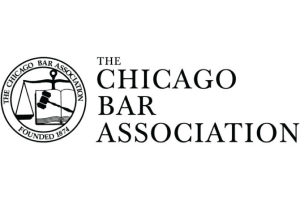Business Counsel
Unfair Competition
Companies must be able to run their businesses free from unfair competition. However, at the same time, businesses have the right to legitimately compete in the marketplace. Examples of unfair competition include misappropriating a company’s trade secrets, improperly interfering with a company’s contracts or business relationships, and making false or misleading representations about a company’s goods or services.
One form of unfair competition is misappropriation of trade secrets. A trade secret is information that a company maintains as secret or confidential that has economic value because it is not known outside of the business. Examples of the type of information that can potentially qualify as a trade secret are computer programs, formulas, manufacturing methods, recipes, blueprints, designs, business plans, pricing information, and customer lists.
Both the Illinois Trade Secrets Act the Federal Defend Trade Secrets Act (DTSA) provide businesses with protection from misappropriation of their trade secrets. Under both the ITSA and DTSA in order to qualify as a trade secret, the information must be sufficiently secret that it has economic value by virtue of the fact that information is not known outside of the business. The business must also take steps that are reasonable under the circumstances to maintain its secrecy. The reasonableness of the steps taken will vary based on the size and type of the business.
Whether information qualifies as a trade secret is a very fact-intensive inquiry. Courts will analyze the following factors in determining whether information qualifies as a trade secret: the extent to which the information is known outside of the business; the extent to which the information is known by employees and others involved in the business; the extent of measures taken by the business to guard the secrecy of the information; the value of the information to the business and to its competitors; the amount of time, effort and money expended by the business in developing the information; and the ease or difficulty with which the information could be properly acquired or duplicated by others.
In addition to establishing that information qualifies as a trade secret, a business bringing a claim under either the ITSA or DTSA must also establish that the trade secret has been misappropriated. The determination of whether information has been misappropriated focuses on whether the information was acquired through improper means. Improper means include theft, bribery, misrepresentation, breach of a confidential relationship or other duty to maintain the secrecy of the information, and espionage. Both the ITSA and DTSA provide that reverse engineering and independent development or derivation are not considered improper means.
Both the ITSA and the DTSA authorize courts to issue injunctions in cases of actual or threatened misappropriation. Both statutes also provide that damages can include both the actual loss caused by the misappropriation as well as the unjust enrichment that the company or individual that misappropriated the information received. Courts may also award as damages a reasonable royalty. The DTSA authorizes courts to order the seizure of misappropriated trade secrets in certain extraordinary situations.
Another form of unfair competition is tortious interference with a company’s contracts or its business expectances. A company’s contracts as well as its reasonable expectancies of entering into relationships with potential customers constitute property interests entitled to protection from improper interference. However, other businesses are justified in legally competing for customers. Greater protection is provided to contractual relationships than to expectancies. Where a party intentionally and unjustifiably induces a third party to breach a contract with a company, the business that lost the contract may be able to maintain an action for tortious interference with its contract.
Similarly, where a company has a reasonable expectancy of entering into a customer or other business relationship and another company or individual improperly interferes with that expectancy and prevents the formation of the relationship, the business that lost the customer or other relationship may be able to maintain an action for tortious interference with a business expectancy. Examples of the type of conduct that will be considered improper are fraud, intimidation, and deliberately making false statements about the company. However, companies are not prohibited from legitimately competing for potential customers. Therefore, lawful competition is a defense to a tortious interference with a business expectancy action.
Where one company makes false or misleading statements about the quality of another company’s goods or services, the injured company may be able to bring a claim under the Illinois Deceptive Trade Practices Act (DTPA). The DTPA also prohibits companies from creating confusion among consumers through misleading advertising. For instance, where one company tries to confuse customers by using a name, logo, or advertising method similar to that of another company, there may be a violation of the DTPA. The DTPA authorizes courts to issue injunctive relief, but does not authorize money damages.
At Neschis and Tolitano, we litigate trade secrets, tortious interference, Deceptive Trade Practices Act, and other unfair competition claims on behalf of businesses threatened by unfair competition. We also defend businesses and individuals who are legitimately competing in the marketplace from unfounded claims. Our primary objective in all litigation is to protect our clients’ legal and business interests. Whenever possible, we explore a negotiated resolution or alternative means of dispute resolution. However, we recognize that there are disputes that can only be resolved through litigation. Because we are experienced in litigating unfair competition disputes, we are able to assert and protect our clients’ interests efficiently and effectively.



